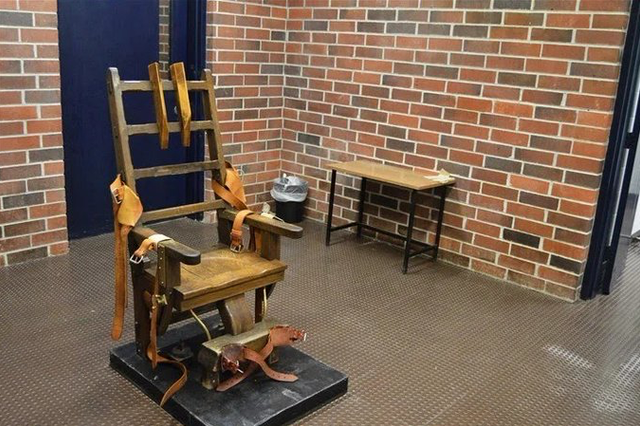New York – An African-American teen executed in 1931 for the murder of a white woman was exonerated by a Pennsylvania court this week, after decades of lobbying by his only surviving sister.
Alexander McClay Williams, age 16, was convicted by a white jury in just four hours and remains the youngest person ever put to death in the eastern US state.
But 91 years later, a county judge dismissed the case and declared Williams was innocent.
Alexander McClay Williams, 16, wrongly convicted & sent to PA’s electric chair June 1931, exonerated June 13, 2022. (L-R:) Robert Keller, Esq., youth’s attorney; Del. Co. D.A. Jack Stollsteimer; youth’s sister Susie Carter (front), her daughter Osceola Williams, author Sam Lemon. pic.twitter.com/0JMiaaqrgz
— Sam Lemon (@SamLemon4) June 17, 2022
“I’m just happy that it finally turned out the way it should have in the beginning,” Williams’ sister, Susie Williams-Carter, was quoted by the Philadelphia Inquirer as saying on Thursday.
“We just wanted it overturned because we knew he was innocent, and now we want everyone else to know it, too,” the 92-year-old said.
Delaware County District Attorney Jack Stollsteimer said in a statement that the case was dismissed on Monday, after years of litigation.
ALSO READ | Texas death row inmate ‘optimistic’ after 27 years
The decision “is an acknowledgement that the charges against him should never have been brought”, the statement said.
The case is the latest recognition of historic racial injustices in the US legal system, which convicted and in several cases executed innocent Americans, many of them Black, in the century following the 1861-1865 Civil War.
On October 3, 1930, the estranged ex-husband of Vida Robare, a white matron at the Glen Mills School for Boys, a detention centre for young offenders, found Robare’s body.
For 30 years I searched for a picture of Alexander McClay Williams. Teresa Smithers, of Michigan, niece of Vida Robare, sent me this archival newspaper photo of him next to the D. A. who wrongfully prosecuted him for murder. He wasn’t 18, that was a deliberate lie by authorities. pic.twitter.com/zfuzVQ6VZR
— Sam Lemon (@SamLemon4) August 12, 2018
She had been “brutally murdered” in her cottage, which was on the school’s grounds, the district attorney’s statement said. The ex-husband, Fred Robare, also worked at the school.
Williams, who was serving an indefinite term at Glenn Mills, was charged with the crime.
Interrogated five times without the presence of a lawyer or a parent, he signed three confessions “despite the lack of eyewitnesses or direct evidence implicating him,” the statement continued.
When he was finally appointed a lawyer, it was William H. Ridley, the first African-American member of the county bar.
“Ridley was given $10 by the Court for expenses (approximately $173 today), and had only 74 days to establish a defence, without the assistance of investigators, experts, or resources,” the statement said.
ALSO READ | Firing squad or electrocution?: US death penalty in spotlight
“The Commonwealth had assembled a 15-member team to handle the trial, which lasted less than two days. The defendant faced an all-white jury, which found him guilty in less than four hours. No appeal was ever filed.”
Stollsteimer paid tribute to the Williams’ sister and Ridley’s great-grandson, who “worked tirelessly for years to demonstrate the inconsistencies in the evidence as well as the unscrupulous manner in which the case was handled.”
There was “substantial” evidence that was either ignored or unexamined, he said.
That included the bloody handprint of an adult male found near the door of the crime scene, photographed by police but never mentioned at trial and the fact Vida Robare divorced her husband for “extreme cruelty,” but he was never examined as a suspect.
“We believe that this young man’s constitutional protections were violated irreparably,” said Stollsteimer.
Follow African Insider on Facebook, Twitter and Instagram
Source: AFP
Picture: Pixabay
For more African news, visit Africaninsider.com


